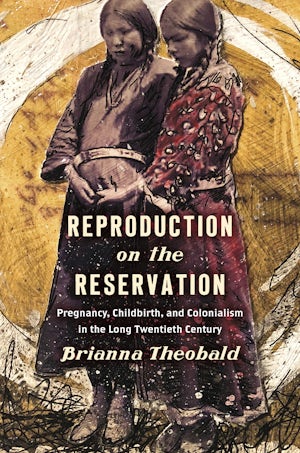A 1970 Law Led to the Mass Sterilization of Native American Women. That History Still Matters
Brianna Theobald is the author of Reproduction on the Reservation: Pregnancy, Childbirth, and Colonialism in the Long Twentieth Century, available now from the University of North Carolina Press.
Marie Sanchez, chief tribal judge on the Northern Cheyenne
Reservation, arrived in Geneva in 1977 with a clear message to deliver
to the United Nations Convention on Indigenous Rights. American Indian
women, she argued, were targets of the “modern form” of
genocide—sterilization.
Over the six-year period that had followed the passage of the Family
Planning Services and Population Research Act of 1970, physicians
sterilized perhaps 25% of Native American women of childbearing age, and
there is evidence suggesting that the numbers were actually even
higher. Some of these procedures were performed under pressure or
duress, or without the women’s knowledge or understanding. The law
subsidized sterilizations for patients who received their health care
through the Indian Health Service and for Medicaid patients, and black and Latina women were also targets of coercive sterilization in these years.
But while Sanchez and
the Native women with whom she organized responded to the results of
that 1970 law, they also recognized that the fight against involuntary
sterilization was one of many intertwined injustices rooted—as was their
resistance—in a much longer history of U.S. colonialism. And that
history continues to this day.
When the federal government forced Native peoples onto reservations
in the 19th century, the situation produced a cascade of public-health
disasters. By 1900, the American Indian population had reached its nadir
of less than a quarter million. Infants and children proved
particularly vulnerable to illness and death. One government official estimated in
1916 that approximately three-fifths of Indian infants died before age
5. On many reservations, women responded by bearing more children
despite their compromised health. The historian Frederick Hoxie has
argued that “only the maintenance of extraordinarily high birth rates”
saved one nation from “dropping into oblivion.”
KEEP READING







No comments:
Post a Comment
Please leave a comment.